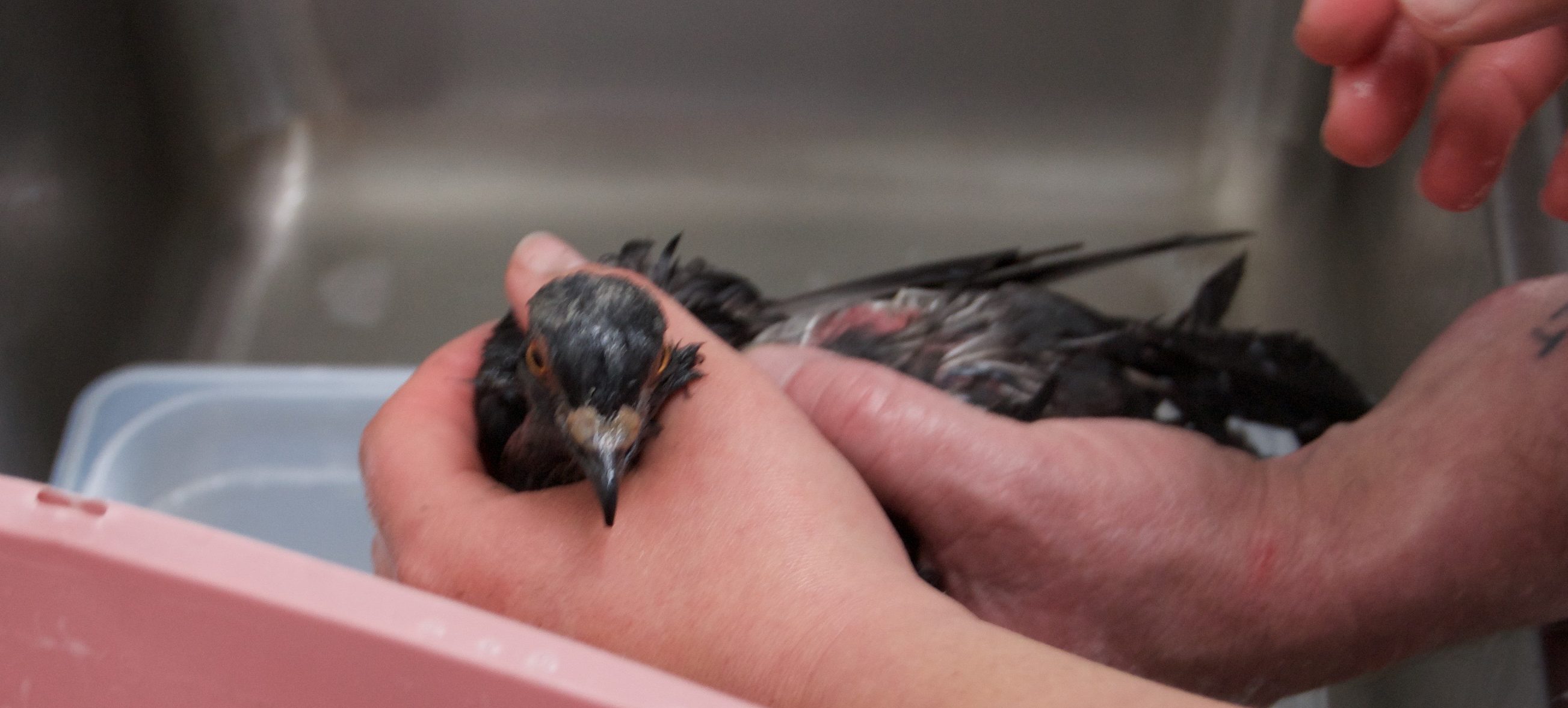
Early Sunday morning we got a call at Humboldt Wildlife Care Center that an injured bird, probably a pigeon, was running around the parking lot at Eureka Natural Foods, unable to fly. A staffperson headed over to find a Rock Pigeon (Columba livia) who’d been contaminated by cooking grease.
Restaurant grease traps are a fairly common hazard for wild animals in urban or suburban areas. Most municipalities have ordinances that make it illegal for commercial grease traps to be uncovered, but accidents happen.
 It’s hard to imagine how bad it must feel to be covered in cooking oil hot enough to give you the equivalent of a bad sunburn. If this pigeon hadn’t been seen and rescued, the result would have been a slow, starving, painful, solitary death.
It’s hard to imagine how bad it must feel to be covered in cooking oil hot enough to give you the equivalent of a bad sunburn. If this pigeon hadn’t been seen and rescued, the result would have been a slow, starving, painful, solitary death.
Cooking grease can be very hard to remove, as anyone who’s ever washed a dirty frying pan knows. Most dish detergents effectively remove grease, but for cooking oils, ease of removal is often tied to the temperature of the wash water – again, as anyone who has washed a dirty frying pan knows. Unfortunately, high temperature water, such as a dishwasher would use, would be fatal, so we must use water that is close to the patient’s body temperature, in this case around 40˚C (105˚F). This makes the job harder. Pre-treating with another oil that is easier to remove can be helpful.
 Multiple pans of water were needed.
Multiple pans of water were needed.
 Clean but soaking wet from the bath, the Pigeon was placed in a 38˚C incubator. Wet and also missing a significant amount of feathers, it is easy to see the first and second degree skin burns over his or her entire body.
Clean but soaking wet from the bath, the Pigeon was placed in a 38˚C incubator. Wet and also missing a significant amount of feathers, it is easy to see the first and second degree skin burns over his or her entire body.
 Now clean, all that’s needed is time to grow in some feathers and heal from the burns.
Now clean, all that’s needed is time to grow in some feathers and heal from the burns.
Rock Pigeons are not appreciated by many, but there is simply no reason to not love these powerful survivors. They take nothing from us. They are not a disaster for native species; and for urban people they may be the most familiar wild neighbor.
We never know. The phone rings and it could be an Eagle, it could be a House Mouse. But someone, somewhere has a wild animal in trouble. There aren’t any other resources but their local wildlife rehabilitator. For nearly 20,000 square miles on the North Coast of California, the size of New Jersey, for most wildlife, there is only Humboldt Wildlife Care Center/BAX. Without your support, there would be nothing. Please help us meet this month’s needs and prepare for our intensely busy wild baby season. We still need to raise $4000 before the end of March. Donate here if you can. Thank you!!

photos: Bird Ally X

